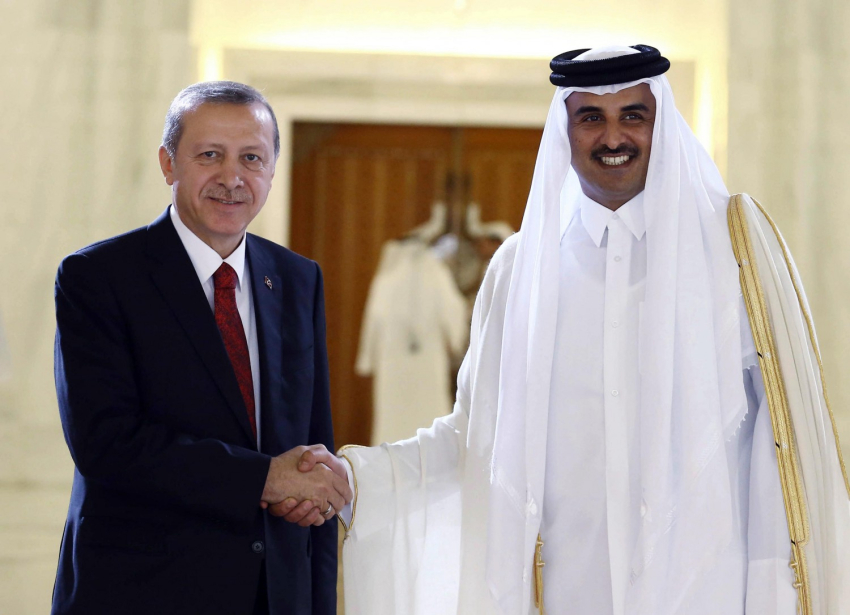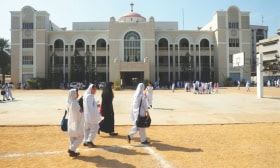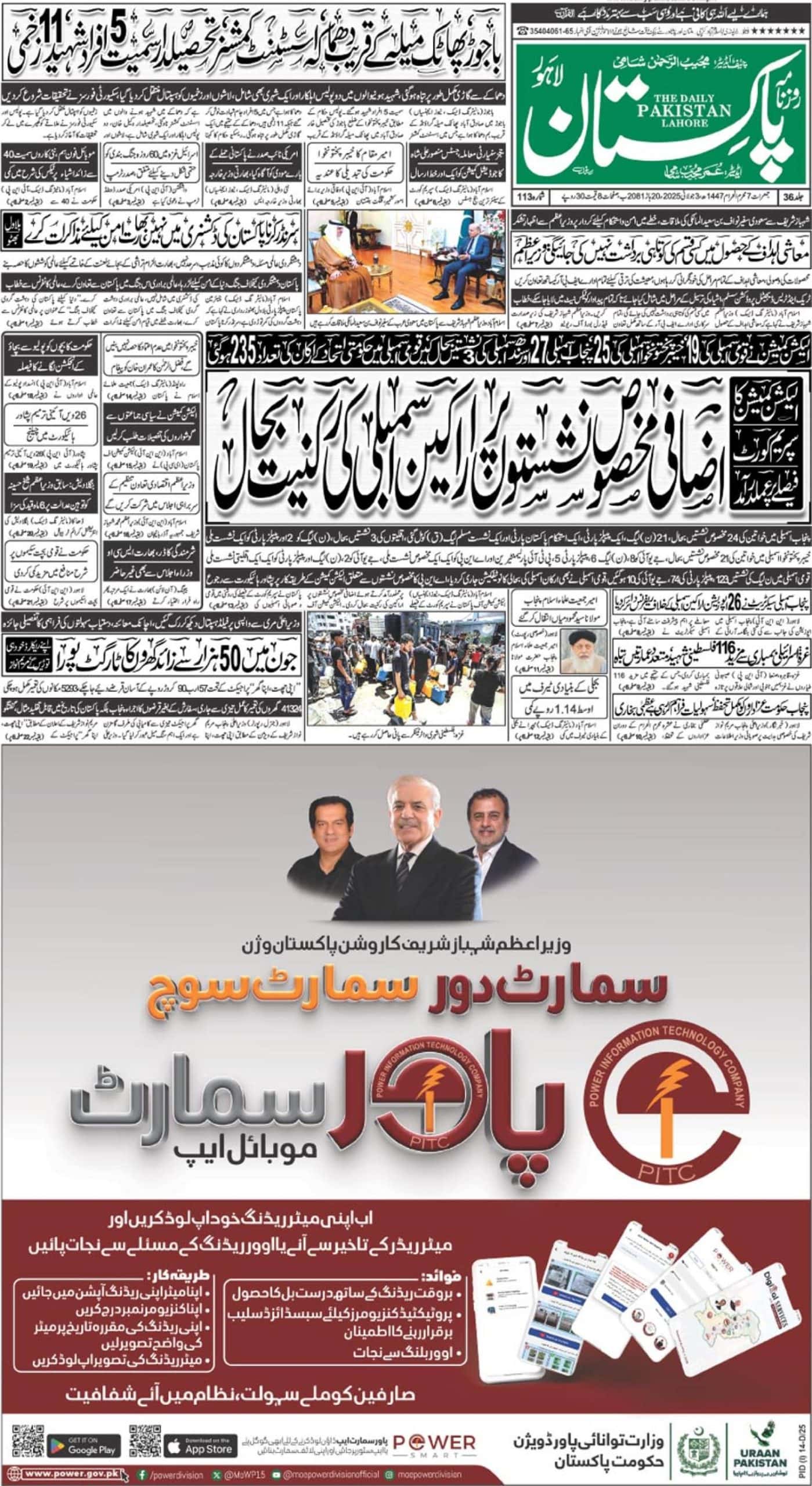Qatar and its enraged neighbors continue to lock horns in a feud that has cost the Gulf states’ solidarity heavily. What was an ugly social media brawl in the public sphere has proliferated to international newspapers taking various forms from paid advertisements to heavily opinionated harsh commentary pieces. Kuwait, France, Germany and the US continue their low-key mediatory efforts but with little result. Qatar has postured defiance with restraint. With everyday life and image on the receiving end, Doha has teamed up with Ankara in a show of strength.
On August 7, Qatari and Turkish forces concluded a joint military exercise – Iron Shield – in Doha. It is significant for being the first of its kind, but it has achieved heightened importance due to its timing and context. Several Qatari missile boats, advanced Turkish naval frigates and Qatari Air Force took part in the two-day long joint war-games which aimed at counter-terrorism operations, “extremism and smuggling operations, as well as maintaining security and stability in the region.
Brigadier Hadi Rashid Al Shahwani, commander of the drill was quoted by the official news service as saying that the training helped the two sides assess the situation, and carry out planning, control, and coordination.
As the Gulf feud shows no signs of dissipation, the military maneuvers sent a strong signal of Turkey-Qatar military cooperation to the Gulf states, which both the countries refuse to acknowledge.
Qatar has braved its neighbors’ blockade since early June with exceptional defiance while exploiting every ounce of diplomatic and political clout. Turkey has found the wedge within Gulf solidarity as its chance to deepen relations with Qatar, especially in the commercial and military spheres.
In June, Turkey’s ambassador to Qatar Ahmet Demirok stated that some 3,000 Turkish military men from its three armed forces would be based in Qatar. While over 200 Turkish troops have already been stationed in Qatar, the under-construction base can house 5,000 troops. Over the years, Turkey has been eager to exhibit its military prowess overseas. Of its three bases abroad, Ankara has set up its largest training camp in Mogadishu, Somalia. Notwithstanding counter-terror capacity building against al-Shahab and other terror organizations in Africa, the base is in a direct race with the United Arab Emirates, which also has similar aspirations despite rather weaker national power and diminishing natural resources.
Turkey’s second external base is located in northern Iraqi city of Bashiqa, where it provides anti-Daesh training on the invitation of Kurdistan Regional Government.
Opposition to Qatar’s success to host Turkey’s third base abroad has been very vocal. Shaikh Khalid Bin Ahmad Al Khalifa tweeted, “Bringing in foreign armies and their armored vehicles is the military escalation that Qatar has created.” Without mentioning Turkey, he had also warned that ‘external interference’ would not solve the problem. His was not an outburst of rage but rather a more calculated reaction. The Bahraini king further tweeted, “There is a contradiction in Qatar’s policy. Either compliance with the regional (GCC) system and its joint and bilateral defense treaties with the major international ally or regional interference.”
Turkey is not caught in the Gulf cross fire. Rather its decision is deliberate and carefully calculated. Discussion for Turkish military cover with like-minded Tayyip Erdogan began when the majority of the GCC nations severed diplomatic relations with Qatar for its alleged role in fueling uprising in the Arab countries. The speculations of a coup were averted after a compromise between Doha and other Gulf capitals was reached. The emir abdicated the throne for his son Sheikh Tamim al-Thani to implement policy changes that had been agreed upon with the neighboring states. The Obama administration’s role left much to be expected for the peninsula state. Like Qatar, Turkey also joyously backed the ouster of Hosni Mubarak and victory of Dr. Muhammad Morsi as Egypt’s democratically elected ruler. The ouster of Morsi in a military coup with US backing further necessitated the need for the two pan-Islamist leaders to team up. Thus, the military base in Qatar fits right in the course of action adopted by the two states.
The tiny gas rich state depends on expatriate manpower and imports to meet 90% of daily needs. Turkish military support may thwart any misadventurism in Doha’s power corridors but can it help maintain normalcy in the country’s streets?
Thus far, Qatar has braved the odds coming its way after its three neighbors imposed sanctions about three months ago. While its Ministry of Administrative Development, Labor and Social Affairs is painting a rosy picture of the situation, the cost of doing business has skyrocketed.
As per a study by Migrant-Rights.org, the blockade has resulted in several migrant workers, across sectors and economic strata, being asked to go on “extended unpaid leave.” The press release further stated, “Given the climate of uncertainty, even embassies of workers’ origin countries are refusing to go on record with comments on this issue.” Two Asian embassies confirmed to the labor watchdog that they had had received complaints regarding enforced leave. “Some are given a part of end of service benefits, others not even that. What’s the assurance that they will be brought back after four or six months? Or they will be paid from here if visa is cancelled,” one unnamed labor official was quoted as saying.
Migrant Rights quoted a Sri Lankan embassy official saying that complaints on payment of wages were on the rise.
Meanwhile, workers in the construction sector, especially in supply companies, have reportedly been given two to four weeks to find alternative jobs or leave the country. More worrisome is the fate of the companies co-owned by citizens or institutions of the quartet states. Their operations are progressing at a snail’s pace if they have not come to a screeching halt. Lest the tensions ease up, mass downsizing of expatriate staff seems undeniable soon.
The adverse effects of the economic siege can also be felt in the hospitality and real estate sectors. While room occupancy continues to slide, house and commercial rents are also dipping significantly. A simple search for accommodation on popular tourist websites like TripAdvisor shows up to 70 per cent reduction in the rate of hotel rooms. The decline seems hard to arrest. Qatar may subsidize everyday commodities to keep inflation low but the service sector is dependent on multiple variables. Already, food items’ prices have shot up by 10% to 15%, making the life of lower-income expatriates even more difficult, especially when they are required to send funds back home to their families who depend on these remittances. In one case, five-star hotels and upmarket cafes have already started closing down after downsizing the staff due to shrinking customer base.
A glimmer of hope has emerged with the relaxation of airspace embargo by the neighboring states, which can not only help improve Qatar Airways’ operations but also the overall mood in the Gulf. Of course, it’s still far from what is needed. There are limits to cooperation between Erdogan’s Turkey and Tamim’s Qatar. The quartet will hurt itself with a prolonged standoff and ensuing bitter cold war. The Gulf rulers and nationals believe it or not: if one state fails or falls, the other similar Gulf states may not survive the domino effect with the possible exception of Saudi Arabia. Time is of the essence for normalization of relations.















